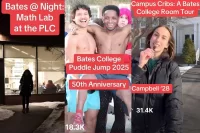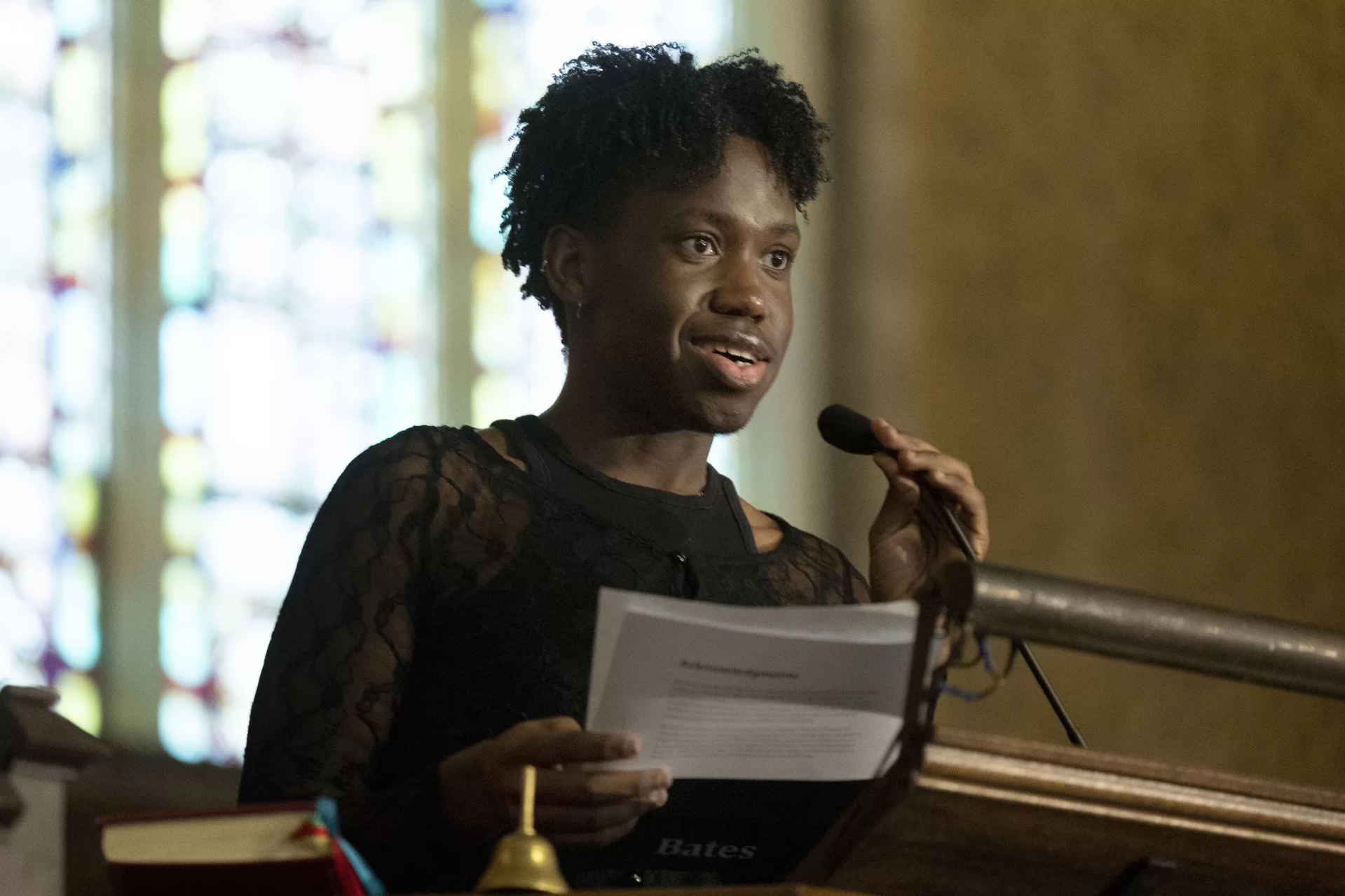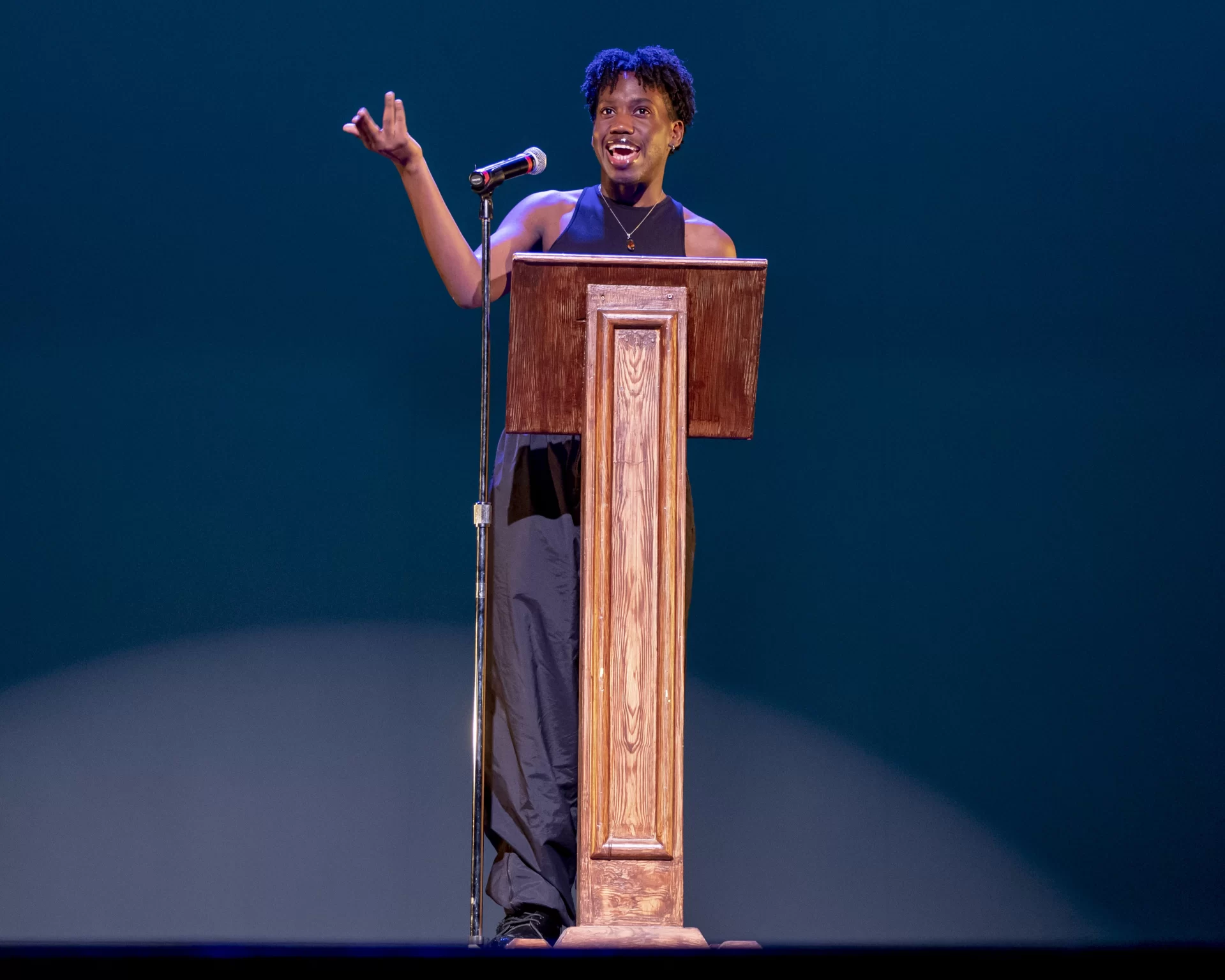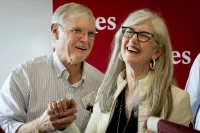
Here’s one definition of what it means to be a college activist from someone who knows, Sam Jean-Francois ’23. It means “always questioning ways that I can make my voice heard” while paying it forward, “ensuring that everyone who’s walking in after me is also heard.”
An Africana studies major with a concentration in Racism and Identity, Jean-Francois’ voice and presence resonates all around the Bates campus.
“Especially as a Black queer student on this campus, I felt like I had to take pieces of myself away to fit in. I didn’t always have the approach I have now, where I’ve reached a place in my life where I’d rather put my energy into changing spaces than changing myself.”
On a recent Monday, you could see and hear Jean-Francois in a historic Bates space, welcoming the community to the annual Martin Luther King Jr. Day keynote in Gomes Chapel, making a powerful call for a day celebrating Black activism: “innately beautiful, resting on the demand for humanity, the love for our differences, and the act of reconstituting life in the world that deems Black people dead at birth.
“Black activism has reshaped our capacity to love, listen, and care for one another in restorative ways. It is about community building, uplifting voices and radical love.”
On another day, Jean-Francois could be seen working with students in the Academic Resource Commons, or at a meeting of the Bates Black Student Union, or, last Friday, with friends taking part in the Puddle Jump.

“When I think about the creation of space, I’m impatient. Why wait for someone else to create something when I’m here and I have the skills and the resources and the support around me to do it?”
And if not on campus, look for Jean-Francois downtown, carrying the flag of the Harward Center for Community Partnerships by teaming with community-based nonprofits — or at a local thrift shop. “Thrifting is my go-to pleasure. Just this weekend I got a down jacket from the Salvation Army store. I’ve been told by friends that I’m a good-luck charm for thrifting.”
A first-generation Haitian American who grew up in Fort Myers, Fla., and later moved with family to the Boston area, Jean-Francois is completing a senior honors thesis, advised by Associate Professor of Africana Sue Houchins, Ph.D., who co-chairs the Africana program. “She’s always challenging me to do more than I think I’m capable of. At first I was very hesitant; I didn’t know if I could do it. And she was like, ‘You can do it. You can do it.’”

Jean-Francois’ thesis confronts the conventional “disaster narrative” propagated by Western scholars and media about Haiti, that the island nation is defined by disaster, like “hurricanes, earthquakes, and floods — an island in constant disarray, void of leadership, stability, and progress as a reflection of our community’s short fallings.”
But that’s untrue, says Jean-Francois.
The real disaster is not natural but intentional: “colonialism is the true disaster, in support of Western imperialism across the Caribbeans. And until we can address the remnants of colonialism or newer forms of it, we can never truly understand the disasters taking place in Haiti because the disasters are coming from a source that’s continuing to cause chaos.”
Reflecting on nearly four years at Bates, Jean-Francois’ values have stayed firm and strong. “I’ve always been committed to justice, equity, safety and belonging — ensuring that anyone in this community, which includes Lewiston, feels comfortable. “
What has changed “is my confidence. I think I feel confident as a reflection of the community that I’ve gained since being here and the love and the strength that they imbue in me — always.”




